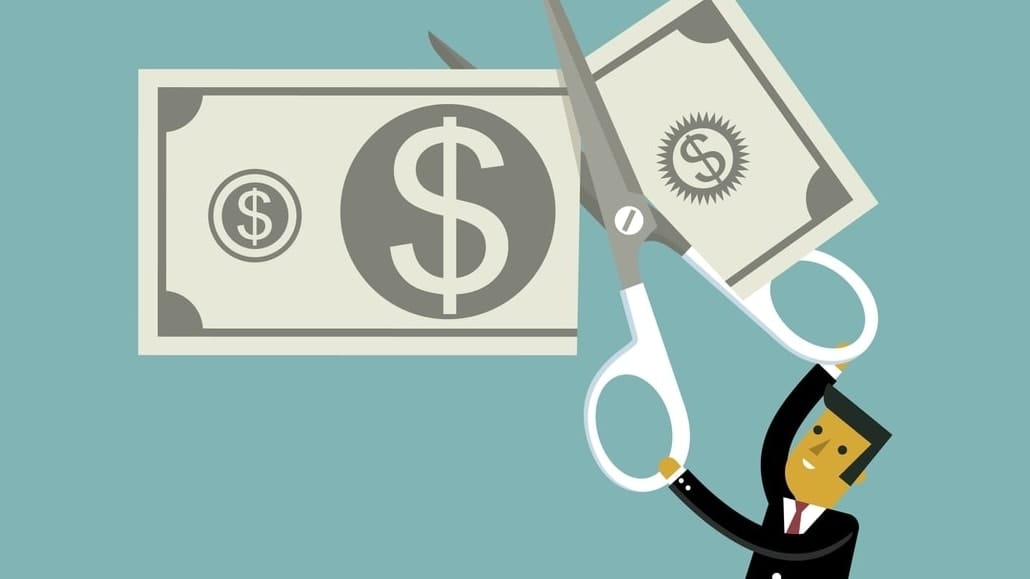
The current COVID-19 pandemic is a traumatic experience for employees. In a surprising act of solidarity, corporate CEOs are taking voluntary pay cuts.
Top leaders at marquee companies in the US, such as GE, Marriott, and United Airlines, have all disclosed plans to cut executive pay. At least 36 companies in the UK have made similar announcements, with Australian companies following suit. Among others, Alan Joyce, James Warburton, and Thomas Knudsen have all announced pay cuts.
Research shows that CEOs can affect up to 40 per cent of their firm’s performance. Compensating a CEO fairly, even generously, has merit when exceptional levels of performance are met in ethical ways.
The problem is when struggling companies overpay their CEOs. In fact, little has been done collectively to address CEO overpayment in struggling firms, despite incessant criticisms regarding excessive pay.
Things are different these days; everyone is struggling. It would seem that it only took a global pandemic for CEOs to finally respond and volunteer pay reductions.
Announcements of CEO pay reductions have indeed been paired with requests for employees to follow suit.
Given the long road ahead for corporate CEOs to regain our trust, should we rejoice in these actions?
Although voluntary CEO pay cuts have been presented as beneficial, research shows that these actions may not be all benevolent. In fact, sometimes they may even make matters worse. Here’s why:
Social pressure as a negotiation tactic
The default first response to a corporate crisis is to cut costs. CEOs taking a pay cut seems like a great act of solidarity to show “We’re all in this together”.
However, perceived solidarity can be a good negotiation tactic for CEOs, avoiding the need for more aggressive tactics. Announcements of CEO pay reductions have indeed been paired with requests for employees to follow suit. Seven West Media, for instance, recently asked some of their employees to take a 20 per cent pay cut, citing that its executives will also be subjected to salary reductions of an undisclosed nature.

By voluntarily reducing their pay, CEOs set the tone and expectations for the sacrifices others will have to make. However, it’s important to keep in mind that qualitative statements that executives are also taking “large” pay cuts can be misleading. They mask the fact that the loss of 20 per cent income for a CEO is different from the same loss for a rank-and-file employee.
Nevertheless, through a sacrificial lamb narrative, CEOs can exert pressure on employees. The social pressure to reciprocate others’ sacrifices may even lead employees to believe that their own pay cut is “a good thing”.
Those who fail to comply, in turn, may be ostracised by failing to be “team players” in these dire times.
Moral licensing to justify tough decisions
CEOs will have to grapple with the ethics of certain choices, such as massive layoffs.
When making tough decisions, we tend to rationalise the morality of our choices in ways that preserve our self-image (“I am a good person”).
One psychological process through which we cope is known as moral licensing – the idea that, “If I do good now, I do not have to do (as) good later”. Thus, we tend to morally pre-pay for allowances in our future actions.
Qualitative statements that executives are also taking “large” pay cuts can be misleading. They mask the fact that the loss of 20 per cent income for a CEO is different from the same loss for a rank-and-file employee.
Moral licensing helps us to neutralise “negative” feelings, such as guilt. If I work out in the morning (good for my health), I can have some extra dessert later (bad for my health). If I donate to a charity (greater good), I can buy a luxury item later (self-indulgence).
By volunteering a pay cut now, CEOs create a psychological “cushion” for making tough decisions later, while maintaining their self-image as “still a good leader”. Research would predict that large CEO pay cuts now may be precursors to the most controversial decisions later (such as mass layoffs).
What do CEOs really give up?
Besides a strategic and self-serving psychological exercise, what do CEOs really give up with these pay cuts?
CEOs have not been particularly transparent in what they mean when they take a pay cut. For instance, although Toll group’s new CEO agreed to a temporary 40 per cent pay cut, the company declined to disclose the value.
Total CEO pay figures are a bit of a smokescreen.
When CEO pay is reported, we often get a final number. In simplified terms, CEO pay will be a combination of fixed salary, bonus, and equity. Most recent figures from the ACSI Report on CEO pay put the average fixed pay for ASX100 CEOs at approximately A$1.88 million. Average total pay was almost three times as much, at about A$5.66m.
This suggests that most of a CEO’s compensation doesn’t come from their guaranteed income. Yet, given the current bear markets, the equity component may not be worth much at the moment.
Thus, CEOs can simply give up a less valuable portion of their compensation in the short term (their equity), while keeping a secure base. By calculation, this would be reflected in a salary cut, making some of these actions largely symbolic.
Now is the time for boards and CEOs to show that they have skin in the game, genuinely care for employees.
CEO pay remains a controversial topic. If the voluntary pay cuts spark a systemic change in corporate mindset, we should welcome it with open arms.
CEOs have a unique opportunity to regain our trust and show that they deserve their pay. Capitalising on this opportunity may be, perhaps, one of the few good things coming out of this pandemic.
Now is the time for boards and CEOs to show that they have skin in the game, genuinely care for employees, and are able to ethically make tough choices.
In the meantime, we should maintain a healthy dose of scepticism in the benevolence of their voluntary pay cuts.





